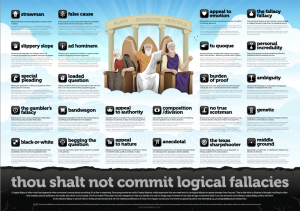Via The Non Sequitur, the blog of Scott Akin and John Casey:
School has started again. For some of us academics, this means shifting from reading professional literature to papers written by absolute beginners. Over the years this can wear on you, especially since you’ll encounter the same moves over and over and over. The sheer repetitiveness of it will cause you to ask whether you’re having any effect at all on their work. If you’re smart, you’ll vent about it to your trusted colleagues in the friendly confines of the faculty lounge. They will commiserate with you, and hopefully remind you of your obligations as a teacher. After a scotch or two and some quality time in a chesterfield chair, you’ll return to class refreshed, or maybe a bit buzzed, but nonetheless ready to do whatever it is you do.
Should you lack good mentors or quality whisky, you may be tempted to go online with a post about how stupid the kids are. Before you do this, you need to remind yourself of three critical things…
.
Read the rest of this excellent post here.



